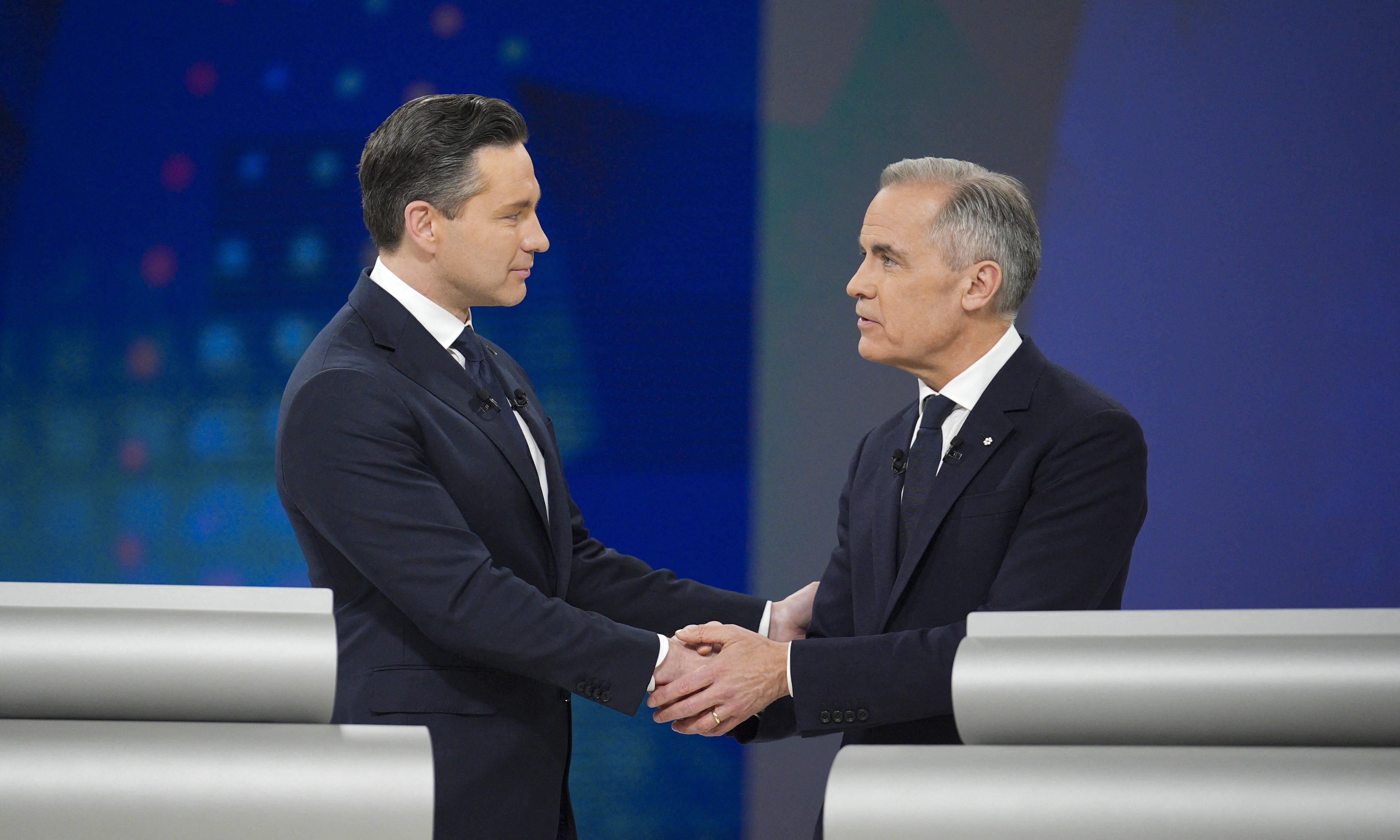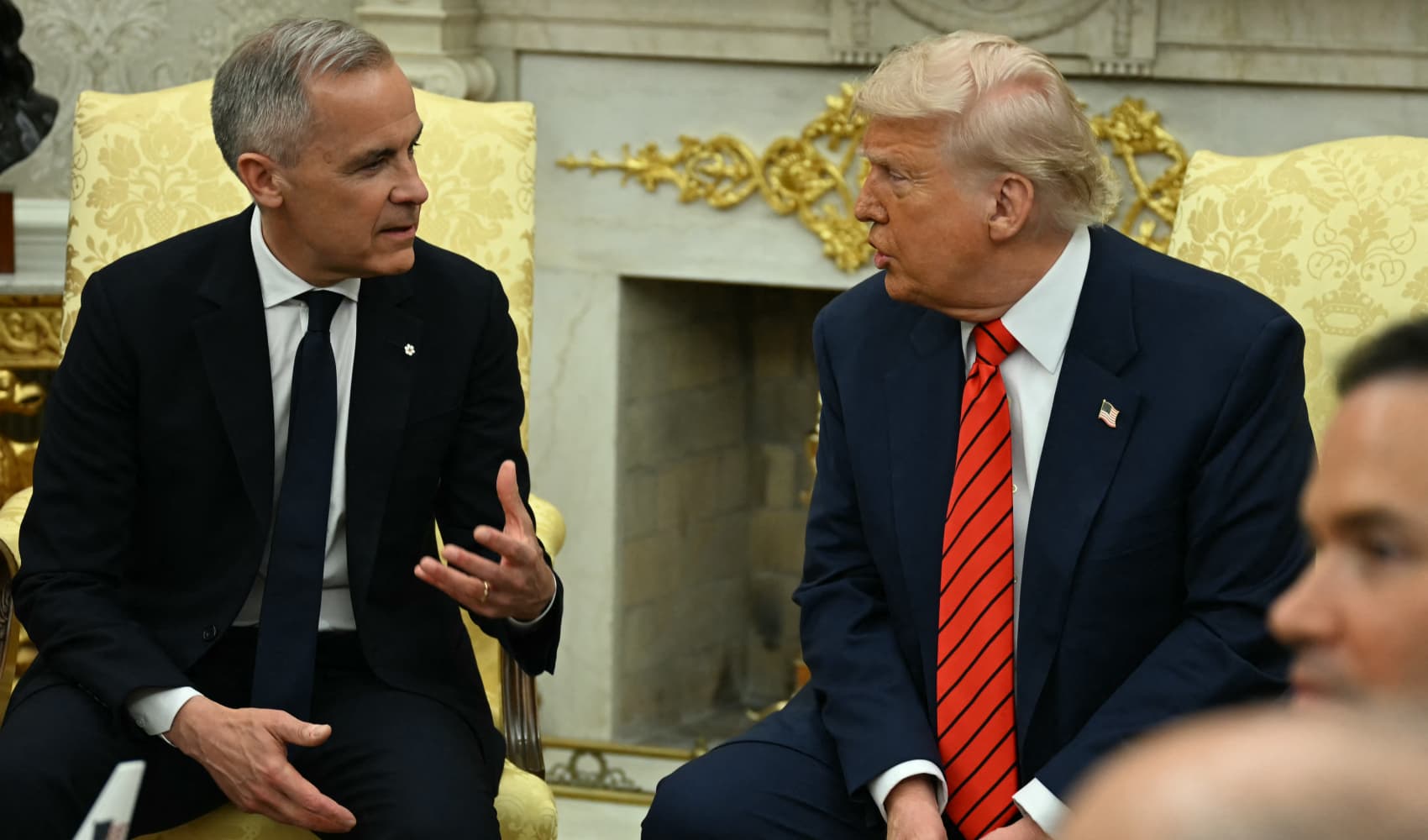Canada's Liberal Party Stays in Power: What it Means
Canada's Liberal Party: Carney Projected to Stay in Power!
Introduction: A Shifting Political Landscape
Hold on to your maple leaves, folks! It appears Canada's political winds have shifted yet again. Against the odds, projections indicate that the Liberal Party, now led by Prime Minister Mark Carney, is likely to retain power. But how did we get here? Just a few months ago, the political landscape looked drastically different. Let's dive into the twists and turns that led to this surprising outcome.
Carney's Ascent: Filling Trudeau's Shoes
Remember the shockwaves that rippled through the nation when Justin Trudeau announced his resignation? Back in January, just before the inauguration of (then President-elect) Donald Trump, the polls weren't looking favorable for the Liberals. His popularity had waned, leaving a power vacuum. Enter Mark Carney, the former Governor of the Bank of Canada and Bank of England. Carney stepped up to the plate, taking the helm of the Liberal Party and aiming to steer the ship of state.
The Weight of Expectation
Taking over from a well-known figure like Trudeau is no small feat. It's like inheriting a well-loved, but slightly battered, classic car. You know its strengths, but you also know its weaknesses. Carney had to quickly establish his own identity while honoring the legacy of his predecessor.
The Trump Factor: A Canadian Rallying Cry
Ah, politics! As the saying goes, "politics makes strange bedfellows." And in this case, it appears that President Trump's actions have inadvertently played a role in bolstering support for the Liberals. The Canadian Broadcasting Corp. projects that the national election was strongly influenced by President Donald Trump. How so?
Us vs. Them: A National Identity Forged
Think of it like this: when a neighbor starts building a fence that seems unnecessarily high, you naturally become more protective of your own property. Trump's "America First" approach, and his sometimes abrasive interactions with Canada, might have inadvertently sparked a sense of national unity and a desire to stand firm against external pressures.
Inflation and Immigration: The Economic Headwinds
It wasn't all smooth sailing for the Liberals. Like many countries, Canada has been grappling with significant economic challenges. Soaring inflation has pinched household budgets, and rising immigration levels have fueled debates about resource allocation and social cohesion. These were key points of attack for the opposition Conservatives.
A Balancing Act: Addressing Economic Concerns
The Liberals had to convince voters that they had a plan to tackle these economic challenges. It's a tricky balancing act. How do you address inflation without stifling economic growth? How do you manage immigration in a way that benefits both newcomers and existing citizens?
The Conservative Challenge: A Missed Opportunity?
With Trudeau's declining popularity and the economic anxieties of many Canadians, the Conservatives seemed well-positioned to seize power. But did they drop the ball? Did they fail to capitalize on the opportunities presented to them?
The Leadership Question: Charisma and Credibility
Leadership matters. Voters are looking for someone they can trust, someone who inspires confidence, and someone who can articulate a clear vision for the future. Did the Conservative leader resonate with enough Canadians to convince them to make a change?
Majority or Minority: The Power Dynamics
The big question now is whether the Liberals will secure enough seats to form a majority government. If not, they'll have to rely on the support of other parties to pass legislation. The CBC said it was too early to know whether the Liberals would win enough seats to form a majority government, but it projected another term for the party, which has governed Canada for almost a decade. That means navigating the tricky waters of coalition politics and compromise.
The Art of the Deal: Working with Other Parties
Think of it as a complicated puzzle. To get things done, the Liberals will need to find common ground with other parties and piece together a workable solution. It requires negotiation, collaboration, and a willingness to compromise.
The Liberal Platform: Key Policies and Priorities
What are the key policies and priorities that will guide the Liberal government in the coming years? Are they focused on economic growth, social justice, environmental protection, or a combination of all three?
Investing in Infrastructure: Building for the Future
Infrastructure projects are often seen as a way to stimulate economic activity and create jobs. Will the Liberals prioritize investments in infrastructure, such as roads, bridges, and public transit?
Climate Change Action: A Green Agenda?
Canada has committed to ambitious targets for reducing greenhouse gas emissions. Will the Liberals double down on their climate change policies and push for a greener economy?
The Impact on Canada-US Relations: Navigating a Complex Relationship
With Trump still playing a significant role on the world stage, how will Canada navigate its relationship with the United States? Will the Liberals adopt a more conciliatory approach, or will they stand firm on issues of national interest?
Trade and Tariffs: Protecting Canadian Interests
Trade is a vital part of the Canadian economy. Will the Liberals work to maintain and expand trade relationships with the United States and other countries?
The International Stage: Canada's Role in a Changing World
Beyond its relationship with the United States, Canada plays an important role in international affairs. How will the Liberals approach issues such as global security, humanitarian aid, and international trade?
Peacekeeping and Diplomacy: Promoting Global Stability
Canada has a long tradition of peacekeeping and diplomacy. Will the Liberals continue to prioritize these efforts in the years ahead?
Public Reaction: The Mood of the Nation
What's the general mood of Canadians following this election? Are they optimistic about the future, or are they concerned about the challenges that lie ahead?
Divided Opinions: A Nation of Diverse Perspectives
It's important to remember that Canada is a diverse nation with a wide range of perspectives. Some Canadians will be thrilled with the election outcome, while others will be disappointed. It's all part of the democratic process.
Looking Ahead: The Challenges and Opportunities
What are the biggest challenges and opportunities facing Canada in the years ahead? From economic uncertainty to climate change to social inequality, there's no shortage of issues that need to be addressed.
Innovation and Technology: Driving Economic Growth
Innovation and technology are key drivers of economic growth in the 21st century. Will the Liberals invest in these areas to create new jobs and opportunities for Canadians?
Conclusion: A New Chapter for Canada
So, there you have it. Against the backdrop of international uncertainty and domestic challenges, the Liberal Party, led by Prime Minister Mark Carney, is projected to stay in power. This election was influenced by President Trump. Whether they secure a majority or minority government remains to be seen, but one thing is certain: a new chapter is being written in Canada's political history. The coming years will be crucial in shaping the country's future and its place in the world. Stay tuned!
Frequently Asked Questions
Here are some frequently asked questions about the recent Canadian election:
- What were the key issues that influenced the election outcome?
Key issues included inflation, immigration, the economy, and perceptions of Canada's relationship with the United States, particularly under President Trump's influence. - How did Mark Carney become the leader of the Liberal Party?
Mark Carney assumed leadership after Justin Trudeau resigned as Prime Minister and leader of the Liberal Party earlier in the year. - What does a minority government mean for Canada?
A minority government means the ruling party doesn't have a majority of seats in Parliament and needs to collaborate with other parties to pass legislation, potentially leading to political instability or compromise. - How might Canada-US relations change under Carney's leadership?
It's difficult to predict, but depending on the US administration, Canada may focus on strengthening ties with other nations while prioritizing its own interests in trade and diplomacy. - What are the likely policy priorities of a Liberal government under Carney?
Likely priorities include addressing inflation, managing immigration levels, tackling climate change, and investing in infrastructure projects.

